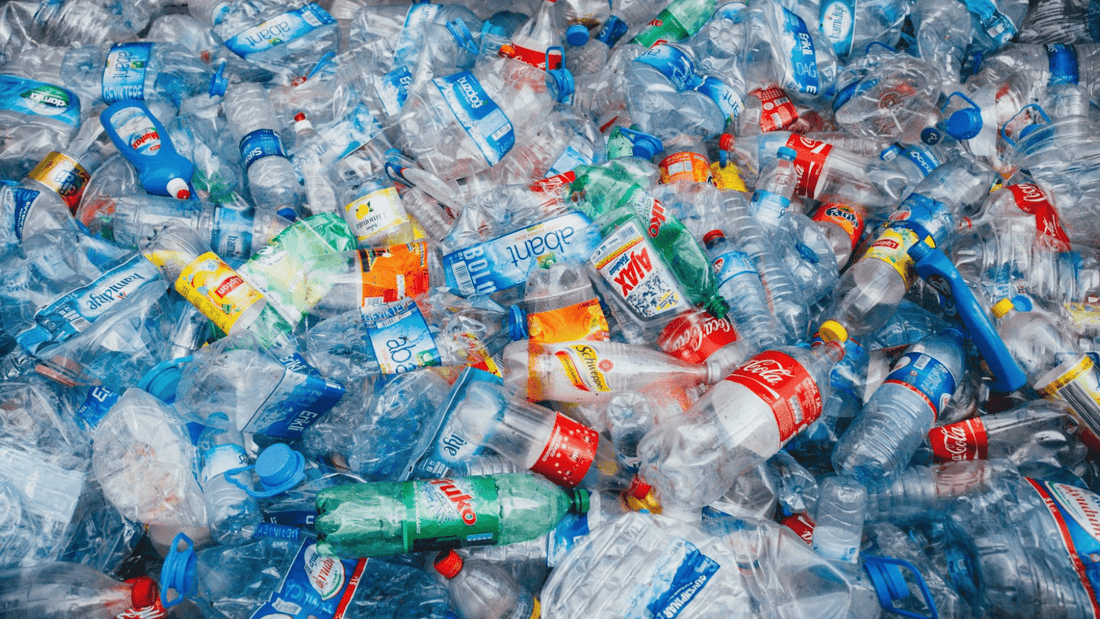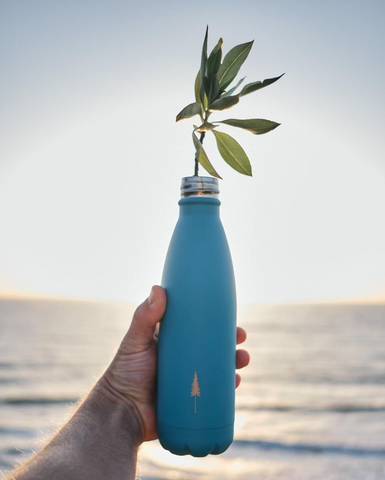It's hard to imagine our everyday lives without plastic - or so we think! In fact, there are already some alternatives to conventional and resource-consuming plastic. Find out more about some of them.
It is hard to imagine our everyday life without plastic - or so we think! In fact, there are already some alternatives to conventional plastic. Learn more about some of them.
Plastic. It is everywhere. If we consciously pay attention to how often we pick up plastic every day, it quickly becomes clear that plastic - that is the correct term - is an integral part of our everyday lives. Plastic is convenient. It is cheap. We NEED it - do we really need it? And what price do we pay for plastic consumption? Plastic destroys entire biotopes, destroys animal and plant life and threatens our health. And: it lasts forever. Reason enough to think about plastic.
What is plastic exactly? How is it made?
Plastic is a by-product that is produced on the basis of petroleum. This happens in several steps. The processing of petroleum produces crude petrol, gas, diesel, fuel oils and gasoil. The crude benzene is split into components such as ethylene, propylene or butylene. These can be synthesised, for example by polymerase. In the process, individual building blocks are assembled into long chains or networks - the basis for plastics. How the end product "plastic" is then to be used determines the processing and possible additives.
Is it still possible to live decently without plastic?
You hardly believe it, but you can. Of course, it is soooo convenient when the paper plates and plastic cutlery go into the rubbish after the children's birthday party. But when the children grow up, they will thank us for the environment we leave them. In many cases, you just have to take a closer look and ask yourself, "Do I really need this?" And this applies not only to plastic, but to consumer products in general.
Plastic waste in epic quantities
While in Europe, waste is separated with religious fervour, elsewhere plastic is carelessly wasted - for example in the United States, where plastic cutlery, crockery and cups are commonplace in restaurants, but also in the home and in supermarkets. And plastic carrier bags are not stingy either in the land of unlimited possibilities. No wonder, because in many places people don't believe in climate change - or at most in places where it is already being felt...
Are there alternatives to plastic?
In fact, plastic can be largely banned from everyday life - you just have to look carefully. Plastic bags are expensive anyway and are gradually being replaced by cloth bags. Food and drinks that come in plastic packaging can also be replaced. Even yoghurt or milk can be found in the refrigerated shelves of many supermarkets, partly in glass containers that make reusable use possible.
Even plastic tableware, considered a blessing by parents of small children, can be replaced. For example, plates and cups made of bamboo - equally robust and often beautifully designed.
And where a lot of plastic is produced, namely in cosmetics and hygiene products, there are now numerous alternatives. You can replace shower gels and shampoos with natural soaps and buy skin creams in glass containers. And even hygiene products specifically for women - we know what you mean - are available either in recyclable or washable versions. Not a new idea, by the way, but better to handle than our parents still knew...
How can you reduce your plastic consumption?
Environmentalists point out that we need to reduce our plastic consumption much more than we do now. A corresponding legislative initiative has already been prepared. But why should we wait for the legislator? Already now, every individual can completely eliminate at least a large part of his or her plastic consumption in daily life - we have, after all, made some suggestions in this regard.
Tips and tricks for dealing with plastic
You can't do without plastic altogether. Even expert authors and bloggers know that. The laptop and the mobile phone, but also children's toys like Lego cannot be completely replaced. What can be done? Avoid plastic as much as possible when shopping, especially for food and cosmetics. Use packaging-free shops for shopping. Take a closer look when making purchases. For example, electronic devices can be used more sustainably - for example, by not constantly replacing them with the latest model and, if they really have to be disposed of, by recycling them properly.
We help you to do without plastic in everyday life
Every day, millions of disposable PET bottles made of plastic are consumed and unfortunately often not disposed of properly. As a result, tons of plastic end up in the world's oceans and threaten them massively. A senseless phenomenon. We offer you the perfect alternative: our TreeBottle, which is made of solid materials and can therefore be used over and over again - it also keeps the contents cool for up to 24 hours or warm for 12 hours! So get yourself a reusable TreeBottle and reduce your personal plastic consumption.
Plastic concerns us all. We can no longer ignore what it is doing to our environment and our health!























1 comment
Hello, I am in the process of avoiding plastic, which is really not easy. For my granddaughter, I have now bought "proud" grandma's bamboo children's tableware from the One World Shop. Now there are recent reports about harmful substances in bamboo to-go cups in particular. I am quite unsettled.
Do you have any tips or experience with bamboo tableware for children?
LG Siri